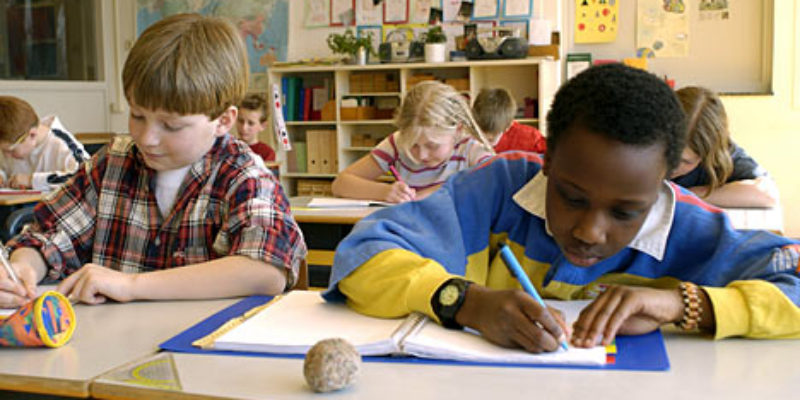One of my great joys is debating politics and policy with young people. This week I had the honor to do so in a class at Tulane. One of the young ladies asked me a question that has troubled me for a long time.
To set the stage for her inquiry, in my opening statement to the class I noted that before Hurricane Katrina New Orleans was known for having one of the most corrupt and truly failed systems of schools in America. That system was dominated by politics and the status quo was buoyed by a union whose goal was to ensure the financial betterment of employees over the education of children.
With Katrina came an opportunity to change that, the state stepped in and basically started anew by eliminating all that was bad by eliminating the traditional school board model and allowed for the creation of a group of charter schools instead. Today the New Orleans schools are all charter schools under a separate school board.
The success of these policy changes became apparent within a few short years. Relative to where it had been, student success climbed substantially for a period of time. But in the last few years a noticeable problem has become apparent. While the metrics of student success had been climbing they have now reached a plateau – in fact, ACT scores in Louisiana are down this year, as they are across the country. Sadly, in order to claim true success, that plateau is not as high as it must be.
This returns me to the probing question from the Tulane student; a plateau is not acceptable so what are we going to do improve upon that? That was a gut check if there ever was one. Why, because she was right on target, what are we going to do?
Unfortunately I do not have an easy answer because in my way of thinking that plateau may well be reflective of the decades long failure of social policy that has led to this plateau. The problem as I have had it explained to me is that we have so many children, especially urban children, who come from homes that are atypical to what the America of fifty years ago was like. These kids are raised in homes in which there is no father and perhaps no mother. They may be raised by well-intentioned grandparents or others but in lacking parental discipline and guidance these kids start out in a bad place. Too many times they are raised in an atmosphere where education is not important and possibly where crime and trauma are the rule and not the exception.
We know that we have problems because we have so many young people who are not even ready to start kindergarten. They don’t know letters; they don’t know numbers; they don’t know colors. Worse yet, many have never even seen a book, let alone have had books read to them. We know all this and these faults are a clear indication that the home from which these children have come is not a home in which they can reasonably be expected to be prepared for a 21st century education.
So what has been our reaction to the failed circumstances that doom young people to a life starting out with an almost assured path to a failed education? The answer is that we expect teachers to be both teachers in the traditional sense and a replacement for a mom and dad who are perhaps not even there. A mom and dad who if they are there may have little interest in education or may not be educated enough that they can help their children. In other words we expect teachers to dive into the whirlpool of failed social policies that have led to this place and to somehow overcome that which may not be overcome.
Advertisement
Our collective attitude is not fair to the teacher or to the student. Teachers, though they may try their best, are not substitute parents. They are not trained to be and they don’t have the time to be. Unfortunately, as I explained to the class, I am afraid that until we find a way to bring about societal change by elevating the stature of the traditional family, one in which mom and dad are around all the time, we may never climb beyond the plateau that we have arrived at. I am not naive enough to believe that we will ever universally see such a thing but both parents must be there for the kids, if only for financial, ethical, and disciplinary reasons.
As an aside it is abundantly clear that the traditional family also brings an economic benefit to the family. It is demonstrable that such a family structure guarantees a growth in family wealth which helps pull that family out of the cycle of poverty.
I know that what I am writing requires a very long time frame to come to fruition. I know that it flies in the face of modern culture. But my belief is that if we direct our social policy and demand a cultural focus on keeping families intact then at least at some point we will see results. That has not been the case for many decades of American liberal thinking and in not so subtle ways we see the results.
So to the class I said, either we return to a society that values intact families, the very family structure that through the eons mankind has valued, or else we may never be able to climb past the plateau of poor education results no matter what policy choices we make. That is a bitter place to be, but it is where we are.
Advertisement
Advertisement

